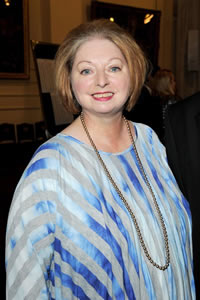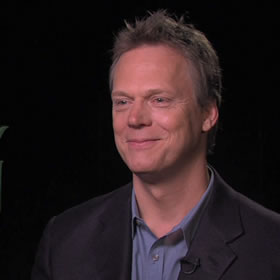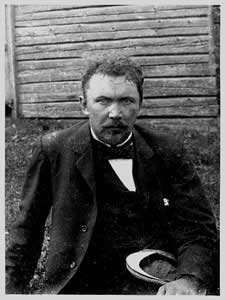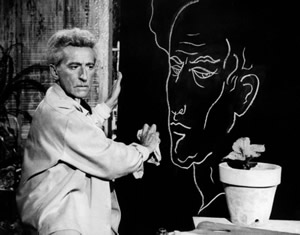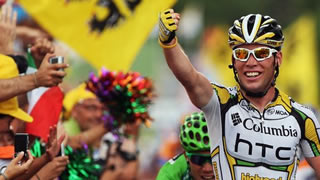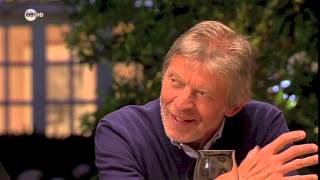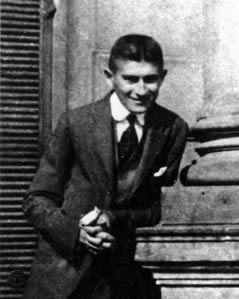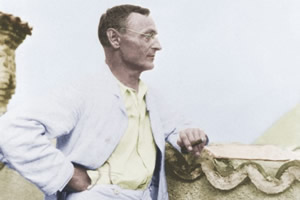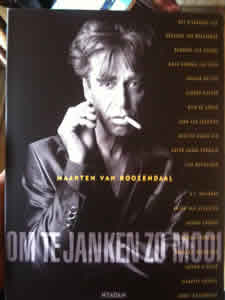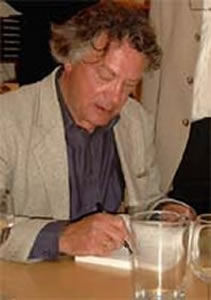De Kroatische schrijver Miroslav Krleza werd geboren op 7 juli 1893 in Zagreb. Zie ook alle tags voor Miroslav Krleza op dit blog.
Uit: The Banquet in Blitva (Vertaald door Edward Dennis Goy and Jasna Levinger)
“But who are we who live while our Blitva has not perished? I, Nielsen, and that Blitvinian they’ve arrested and whom they’re leading in chains across the empty square, under the monument of the Blitvinian genius. In a rubber raincoat that poor bugger passed by, pale and upright, defiant, surrounded by a patrol of cuirassiers, and from under his left shoulder blade, as though drawn in bright red lipstick (almost cadmium), over the muddy and drenched rubber flowed perpendicularly an intensely red stream of fresh human blood. It was morning. A gray, dark, guttering, slimy, antipathetic, muddy Blitvinian morning, and in the distance, from around the corner, where stood the frowning scaffolding of a new five-story building, from the new Blitvinian corso came the sound of “Tango-Milango” from the Hotel Blitvania. That the Hotel Blitvania, as Barutanski’s headquarters, had served as a central torture chamber during the years ’17, ’18, and ’19 and that in the cellars of that accursed hotel several hundred people had been slaughtered was known to all in the city and over the whole of Blitva, and for years people made a detour around it in silence and with bowed heads, but today, on that very same place of execution, they were dancing the Tango-Milango.
In the newspapers of that mythical period, when Barutanski ruled from that accursed hotel as the first Protector, one might read in some texts consisting of cleverly infiltrated lines, between two or three words, timidly and cautiously, hints that once again someone had been massacred in the Hotel Blitvania, that someone had given evidence in court from a stretcher, that someone had been blinded, that someone had had needles stuck under his nails, and another with broken joints, but today it was all forgotten, today the Hotel Blitvania had been renovated as a first-class hotel.”
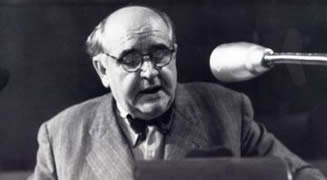
Lees verder “Miroslav Krleza, Ludwig Ganghofer, Joseph Winckler, Hasan Abidi”

